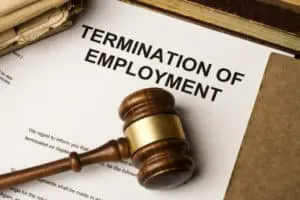Do I Have A Claim For Wrongful Termination Against My Employer In Manhattan?
Wrongful termination of employment is not, in itself, a cognizable claim in the State of New York. Manhattan is an at-will employment state. This means that employment law in Manhattan is not always fair, and it is not always just.
In Manhattan, unless you have a contract of employment that states otherwise or unless you are a member of a labor union, you can be terminated – that is, fired — for any reason or no reason, good reason or bad reason, as long as it’s not a reason that’s prohibited by statute or public policy.
Most reasons for termination that are prohibited by statute or public policy fall into the categories of discrimination or retaliation. That is, either the termination is discrimination against you based on your membership in a protected class, or the firing is retaliation against you for engaging in legally protected conduct. Employees who are fired for participating in protected conduct are often termed “whistleblowers.”
Laws against discrimination and retaliation in employment consist of federal laws (that is, laws that govern the entire country), New York State laws, and NY Laws.
Federal law provides a floor of protection against discriminatory or retaliatory discharge from employment. However, states can, and often do, go beyond the federal minimum. In other words, states can provide, to workers, a greater amount of protection against arbitrary firings than the federal government does.
New York State is generally a pro-employee state. Likewise, Manhattan is a strongly pro-worker city. New York State shields employees against discriminatory and retaliatory terminations to a greater degree than the federal government does. In turn, Manhattan protects workers against discriminatory and retaliatory firings to a greater extent than even New York State does.
The broadest federal anti-discrimination law is Title VII of the Civil Rights Act of 1964, as amended (“Title VII”). Title VII forbids private employers with 15 or more employees from discriminating in compensation or in the terms, conditions, and privileges of employment on the basis of certain protected categories. These categories are race, color, religion, sex, and national origin.
At the state level, the most important anti-discrimination statute is the New York State Human Rights Law (the “State Human Rights Law” or the “NYSHRL”), which is set forth in the New York Law. The State Human Rights Law forbids employers with four or more employees from discharging from employment, refusing to employ an individual, or discriminating against a person in compensation or in terms, conditions, or privileges of employment because of the person’s age, creed, color, national origin, sexual orientation, military status, gender, disability, predisposing genetic characteristics, marital status, or status as a victim of domestic violence.
At the municipal level, the broadest anti-discrimination statute is the New York City Human Rights Law (the “City Human Rights Law” or the “NYCHRL”), which is set forth in the New York Administrative Code. The City Human Rights Law is still more stringent than New York State law. However, the NYCHRL applies only to employers in the five boroughs in the borough of Manhattan – including Manhattan.
The New York City Human Rights Law prohibits Manhattan-based employers with four or more employees from discharging from employment or refusing to hire a person or discriminating against a person in compensation or in terms, conditions, or privileges of employment because of the person’s actual or perceived age, race, creed, color, national origin, sex, disability, marital status, domestic marital status, sexual orientation, citizenship status, domestic violence status, or status as a victim of sex offenses.
The New York City Human Rights Law prohibits discrimination, including termination of employment, based on both actual status and perceived status. For example, under NYCHRL, an employer cannot terminate an individual either because the individual is Jewish or because the employer believes, rightly or wrongly, that that the person is Jewish. In contrast, Title VII protects employees based only on the protected categories to which the workers actually belong, not based on the protected categories to which the employer believes, albeit erroneously, that the employees belong.
Not only is it unlawful to terminate a worker for a discriminatory reason, it is unlawful to terminate a worker for a retaliatory reason. Complaining about discrimination or harassment based on any protected characteristic constitutes protected conduct.
For example, not only can a company not fire an employee because he is black, the company can’t fire the employee because he or she objects to or opposes being discriminated against at work because he or she is black.
It is unlawful for the company to retaliate against the worker by firing him or her for such protests, even if the worker’s complaints turn out to be unfounded. To be protected conduct, the employee’s complaints need only be reasonable and in good faith.
If you are an executive or a professional in the Manhattan, NY metro area and you believe you have been wrongfully terminated, call Manhattan Wrongful Termination Lawyer David S. Rich at (347) 835-5688 today.
Our firm’s labor and employment practice includes the following:
- Labor and Employment Litigation
- Employment Compliance and Consulting
- Business Contracts and Agreements
Return to Practice Areas page.


